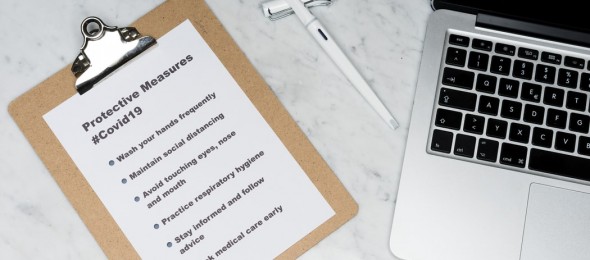Rule 11 — Your New favorite Rule
Triage — MASH Returns
Remember when Rule 11 was used just to memorialize a discovery extension? Meet the new and improved Rule 11. It’s a powerful tool to keep your clients happy and your cases moving when you don’t have regular access to the courts. Remember those days — when you set a motion and spent three hours at the courthouse getting it heard? Those days are gone as well.
As we all do our part to support our courts and clients during the COVID-19 pandemic, heading to the courthouse for every motion or fight between counsels is gone. Our judges have to triage all types of cases – This includes criminal, family, and other matters. Temporary Restraining Orders and immediate employment matters will probably move ahead of a motion to compel. With limited access to the courts, lawyers need to triage and manage their cases as well.
So how does Rule 11 fit into this new world order? Rule 11 allows parties to “alter” the rules of procedure to fit their needs. The rules of procedure aren’t always required, nor are they the only way to do things—they are the default rules when the parties cannot agree on another method.
We know that justice delayed is justice denied. Need discovery to move forward on your case and need a motion to compel? Can’t agree on the process for online depositions? Need a ruling on a privilege log? These are all common matters that keep a case flowing. They are all matters that can be decided through the use of a neutral. You can choose to “mediate” these disputes and resolve them by filing a binding Rule 11 agreement detailing the results of the proceeding. How parties reach agreement has always been up to them. Yes, you could arm wrestle, but that might violate social distancing.
You can jointly agree to a special master. You can reach stipulations that reflect the special master’s order. If you don’t agree to all of the master’s finding, you have the option to stipulate to those you do and submit only the contested issues to the court.
Thoughtful use of judicial resources will increase your standing with the court and keep your client happy.
Present the court with an agreed order identifying the special master and detailing the scope of authority granted to the master and the process for submitting the final order to the court.
Look for a neutral that offers online services and has short segment pricing. Work with neutrals that have experience in evidence, procedure and discovery. Agree to pay now and add those expenses as court costs later.
Summary Jury Trials
Wouldn’t it be great if you could still get a jury trial during the pandemic? Wouldn’t it be wonderful if those jurors could feel safe during the trial? Wouldn’t it be even better if all of this only took a day? We have long had the process and rules for allowing summary jury trials (“SJT”), but few lawyers know them. SJT offer lawyers the ability to have jurors consider their evidence, deliberate, and render a decision. By agreeing on the admissible evidence in advance and working with a judge or neutral to control the scope of the presentation, jurors hear the same information they would have in a trial – just in a summary fashion. By essentially fast-forwarding to the closing argument we minimize trial time and exposure. Our rules also require only a six person jury for SJTs – which means a smaller venire panel and jury. Because these trials will occur quickly, we decrease days away from work, multiple trips (if any) to the courthouse, the number of people needed for trials, and the risk that someone during at trial will start off well but develop symptoms. In fact, SJTs could be done entirely remotely. With a smaller venire panel, voir dire could be done using videoconferencing technology such as Zoom. Once selected, jurors can watch the argument “live” or with a short delay to allow for court rulings. Jurors could log in, watch the summary, and be ready to deliberate with the other jurors.
If courts can accomplish four SJTs in a jury week without anyone coming to the courthouse, that will free up our courtrooms for trials that require in-person space.
The public needs to be included in the resolution of cases. They need to have a voice in how we decide issues of evictions, employment claims, and liability. They need to temper and support the power of government in criminal cases. Jurors are the checks and balance on a judicial system that will otherwise have only the singular view of lawyers.
Photo by: Markus Winkler on Unsplash














